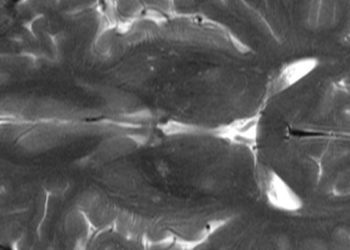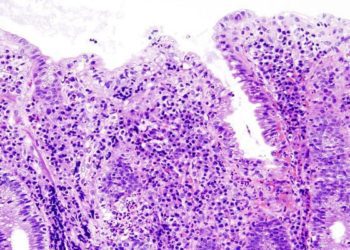Tofersen does not improve ALS symptoms in patients with SOD1 mutations
1. In patients with amyotrophic lateral sclerosis (ALS) and superoxide dismutase 1 (SOD1) mutations, tofersen does not result in significant functional improvement as compared to placebo.
2. In comparison to the placebo, tofersen significantly reduced SOD1 concentrations in the cerebrospinal fluid (CSF) and plasma of persons with faster progressing SOD1 ALS.
Evidence Rating Level: 1 (Excellent)
Study Rundown: ALS is a multisystem neurodegenerative disorder with a poor prognosis. It typically leads to progressive muscle weakness and wasting. A subset of patients with ALS has mutations in the gene encoding for the SOD1 protein. In these patients, the neurodegenerative effects of ALS are hypothesized to be caused by the accumulation of abnormally folded SOD1 proteins through the gain of toxic function. Tofersen is a single-stranded deoxyribonucleotide that aims to reduce the aggregation of abnormally folded SOD1 proteins. It inhibits SOD1 protein synthesis, reducing the neurodegenerative effects of SOD1 ALS. The current study was a randomized controlled trial comparing tofersen against a placebo amongst patients with SOD1 ALS. It primarily investigated whether tofersen differed from placebo in changing SOD1 ALS physical function or other clinical endpoints. While tofersen did improve secondary endpoints, such as reducing the concentration of SOD1 proteins within the CSF, it did not cause a significant change in functioning as measured through the ALS Functional Rating Scale-Revised (ALSFR-S) total score. This study was limited in that the study groups were not balanced based on plasma neurofilament light chain concentrations at baseline. Although further investigations into the possible utility and initiation timing of tofersen for SOD1 ALS are required, this study provided evidence that tofersen alone may not significantly change functioning for persons with fast-progressing SOD1 ALS.
Click here to read the study in NEJM
In-Depth [randomized controlled trial]: The current study was a phase three, double-blind, randomized, placebo-controlled trial comparing the antisense oligonucleotide tofersen against placebo amongst persons with SOD1 ALS. Artificial CSF was used as a placebo control. In total, 108 adult participants with SOD1 mutation confirmed ALS were randomly assigned to receive tofersen or placebo in a 2:1 ratio through a regimen of intrathecal bolus injections over 24 weeks. After randomization, participants were further stratified into subgroups of those predicted to have faster-progressing disease and those with slower-progressing disease. The primary endpoint was a change in function as measured through the ALSFRS-R score from baseline to 28 weeks amongst participants with faster-progressing disease. Secondary endpoints included clinical endpoints, such as total concentration of SOD1 proteins in the CSF, the concentration of neurofilament light chains within the plasma, and safety. Results of the primary analysis found that tofersen did not cause a significant change in total ALSFRS-R score at 28 weeks compared to placebo (difference, 1.2 points; 95% Confidence Interval [CI], -3.2 to 5.5; p=0.97). However, results from the secondary analysis found that tofersen caused a significant reduction in the concentration of SOD1 proteins in the CSF in both the faster-progressing subgroup (difference between tofersen and placebo, 0.62; 95% CI, 0.49 to 0.78) and slow progressing subgroup (difference between tofersen and placebo, 0.74; 95% CI, 0.63 to 0.88). Similar results were found for the concentration of neurofilament light chains in the plasma (difference between tofersen and placebo, 0.33; 95% CI, 0.25 to 0.45). No significant differences were found between tofersen and placebo for other secondary clinical endpoints. Notably, 7% of participants who received tofersen experienced serious neurologic adverse events, including aseptic meningitis, lumbar radiculopathy, and myelitis requiring hospitalization. In summary, tofersen did not improve outcomes in ALS patients with SOD1 mutations.
Image: PD
©2022 2 Minute Medicine, Inc. All rights reserved. No works may be reproduced without expressed written consent from 2 Minute Medicine, Inc. Inquire about licensing here. No article should be construed as medical advice and is not intended as such by the authors or by 2 Minute Medicine, Inc.








